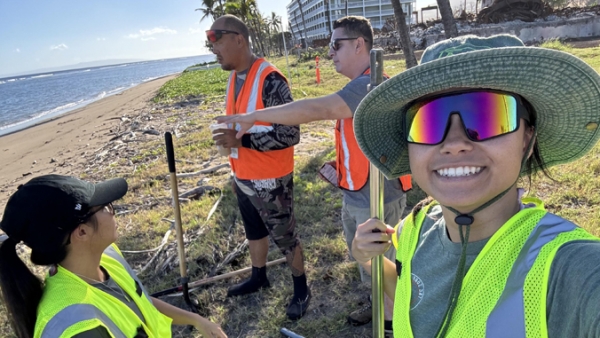Arsenic leaking from abandoned gold mines can harm forest ecosystems by entering soils and affecting soil organisms.
articles
Bacterial Villain Behind Lake Erie’s ‘Potent Toxin’ Unveiled by U-M Study
In the warm summertime waters of Lake Erie, cyanobacteria, or blue-green algae, can proliferate out of control, creating algal blooms that produce toxins at a rate that can harm wildlife and human health.
Will Glacier Melt Lead to Increased Seismic Activity in Mountain Regions?
A recent study from Earth and Planetary Science Letters is the first to directly link earthquakes to climate change-induced glacial melt.
A Tale of Two Ponds Sheds Light on High Emissions
When Meredith Holgerson arrived at Cornell in 2020, she began searching for the perfect ponds.
How Can Cocoa Farmers Adapt to Climate Change?
Climate change threatens agricultural production across sub-Saharan Africa, where most farmers rely on rainfall.
Student Expands Research on Microplastics in Hawaiian Waters
After graduating from Kalaheo High School, Hope Kanoa knew she wanted to focus on Hawaiʻi’s water resources while attending the University of Hawaiʻi at Mānoa.









